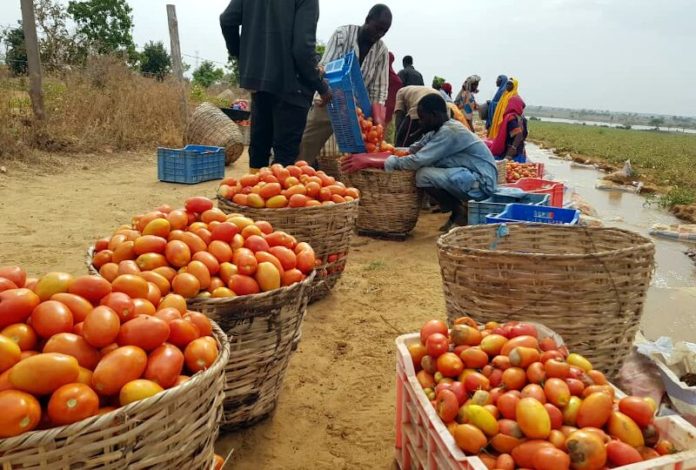Successful agribusiness ventures in Africa often require vertical integration whereby the supply chain of a company, or parts of it, is integrated and owned by that company. This is according to Euler Bropleh, founder and managing director of investment firm VestedWorld. Speaking at the recent African Private Equity and Venture Capital Association conference in Dakar, Senegal, Bropleh gave the examples of two of VestedWorld’s portfolio companies, Tomato Jos and Victory Farms.
Tomato Jos: Ensuring raw material supply.
In 2020, VestedWorld participated in the €3.9 million series a funding round of Tomato Jos, a Nigeria-based producer of tomato paste. Nigeria is a large consumer of tomato paste but most of it is imported. Bropleh explained how the trick to running a successful tomato-processing venture is to first ensure a consistent supply of high-quality tomatoes at the right cost. If a tomato paste factory doesn’t have an adequate tomato supply, it won’t be profitable.
Tomato yields in Nigeria are much lower than the world average. Tomato Jos – which sources tomatoes both from its own farm and surrounding smallholder farmers – therefore spent five years increasing its yields and that of the farmers in its network. Through classroom and field-based training, Tomato Jos has focused on changing more than 100 specific farming behaviours for the farmers in its programme.
“They actually had to farm themselves in order to prove that you can achieve those yields, and then start working with farmers to show them how they can grow crops in order to achieve those yields,” Bropleh explained. Only once Tomato Jos felt comfortable it had enough high-quality supply, it start to build its factory, which officially opened in 2021.
Bropleh highlighted one of Tomato Jos’ competitors that built a tomato paste factory without first ensuring it had access to enough raw materials to feed the facility. “They thought they could buy those raw materials from farmers when they harvested it. Come harvest time, the price of tomatoes was higher than they were willing to pay. They couldn’t get access to all the raw materials they needed.”
Victory Farms: Owning the distribution and retail network.
Fish farming company Victory Farms, which produces tilapia in Homa Bay, Kenya, also has a vertically integrated business. In addition to running its own hatchery ponds, deep water cages, and a processing plant, Victory Farms has established an in-house distribution system and retail network.
According to Bropleh, Victory Farms tried to use third-party providers of refrigerated trucks but had instances where the driver would turn off the refrigeration mid-way between Lake Victoria and Nairobi to save on fuel. “You just can’t have that. A lot of their fish would spoil as a result of that. So they started transporting their fish themselves… That just shows you how you need to be present in multiple stages.”








